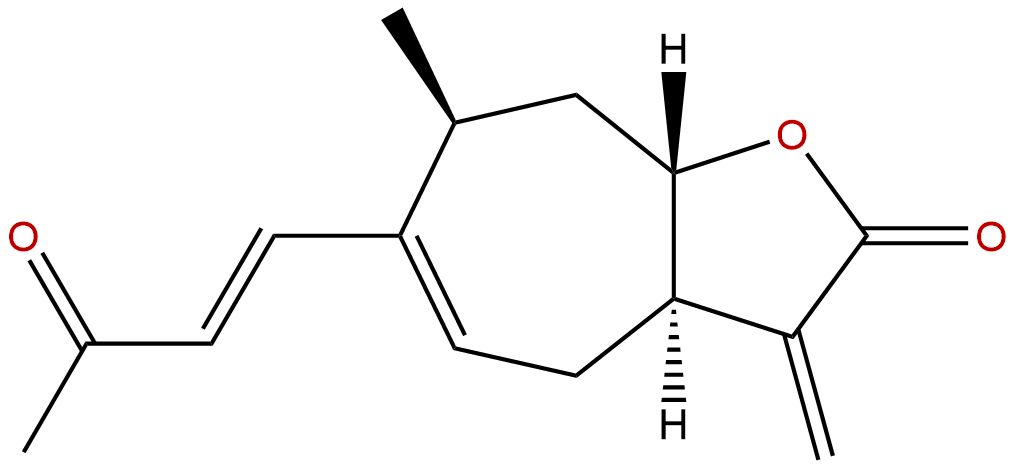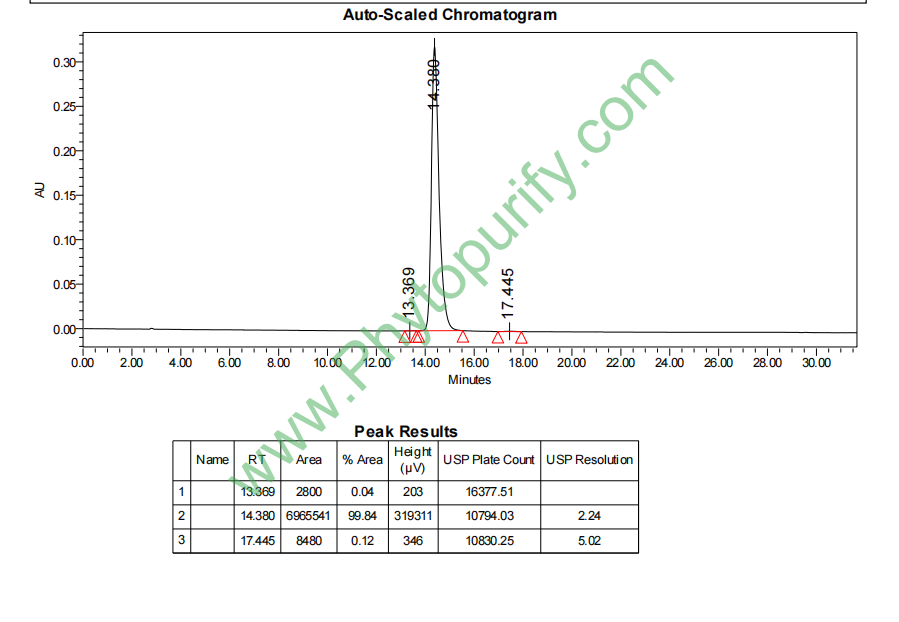
XanthatinCAS No.:26791-73-1
|
||||||||||
 |
|
|
||||||||

| Catalogue No.: | BP1455 |
| Formula: | C15H18O3 |
| Mol Weight: | 246.306 |
Product name: Xanthatin
Synonym name:
Catalogue No.: BP1455
Cas No.: 26791-73-1
Formula: C15H18O3
Mol Weight: 246.306
Botanical Source: Prod. by Xanthium pennsylvanicum, Xanthium itakicum, Xanthium spinosum, Xanthium strumarium and Xanthium sibiricum
Physical Description: Powder
Type of Compound: Sesquiterpenoids
Purity: 95%~99%
Analysis Method: HPLC-DAD or/and HPLC-ELSD
Identification Method: Mass, NMR
Packing: Brown vial or HDPE plastic bottle
Storage: Store in a well closed container, protected from air and light. Put into refrigerate or freeze for long term storage.
Whenever possible, you should prepare and use solutions on the same day. However, if you need to make up stock solutions in advance, we recommend that you store the solution as aliquots in tightly sealed vials at -20℃. Generally, these will be useable for up to two weeks.
The product could be supplied from milligrams to grams, up to kilograms
Inquire for bulk scale.
Descriptions:
Xanthatin, a natural sesquiterpene lactone, has significant antitumor activity against a variety of cancer cells; it displays significant antitumor effects through cell cycle arrest and apoptosis induction in A549 cells, these effects are associated with intrinsic apoptosis pathway and disrupted NF-κB signaling, suggests that it may have therapeutic potential against human non-small-cell lung cancer.[1]
Xanthatin has bactericidal and fungicidal activity, including against Colletotrichum gloesporoides, Trichothecium roseum, Bacillus cereus and Staphylococcus aureus.[2]
Xanthatin and the crude extracts of Xanthium strumarium have cytotoxic activity.[3]
(?)-Xanthatin is a highly effective inhibitor of MDA-MB-231 cell growth, inducing caspase-independent cell death, and that these effects were independent of FTase inhibition; GADD45γ was selectively induced by (?)-xanthatin and that GADD45γ-primed JNK and p38 signaling pathways are, at least in part, involved in mediating the growth inhibition and potential anticancer activities of this agent; GADD45γ is becoming increasingly recognized for its tumor suppressor function, suggests that the novel possibility that (?)-xanthatin may have therapeutic value as a selective inducer of GADD45γ in human cancer cells, in particular in FTI-resistant aggressive breast cancers.[4]
Xanthatin induces G2/M cell cycle arrest and apoptosis in human gastric carcinoma MKN-45 cells, it may have therapeutic potential against human gastric carcinoma.[5]
Xanthatin is a novel potent inhibitor of VEGFR2 signaling, can inhibit angiogenesis and tumor growth in breast cancer cells.[6]
References:
[1] Zhang L, Ruan J, Yan L, et al. Molecules, 2012, 17(4):3736-50.
[2] Ginesta-Peris E, Garcia-Breijo F J, Primo-Yúfera E. Lett Appl Microbiol, 1994, 18(4):206-8.
[3] Roussakis C, Chinou I, Vayas C, et al. Planta Med, 1994, 60(5):473-4.
[4] Takeda S, Matsuo K, Yaji K, et al. Chem Res Toxicol, 2011, 24(6):855-65.
[5] Zhang L, Tao L, Ruan J, et al. Planta Med, 2012, 78(9):890-5.
[6] Yu Y, Yu J, Pei C G, et al. Int J Clin Exp Pathol, 2015, 8(9):10355-64.
[7] Yan C, Li H, Yu W, et al. J Chromatogr B , 2014, s 947–948(2):57-61.
HPLC of Xanthatin
